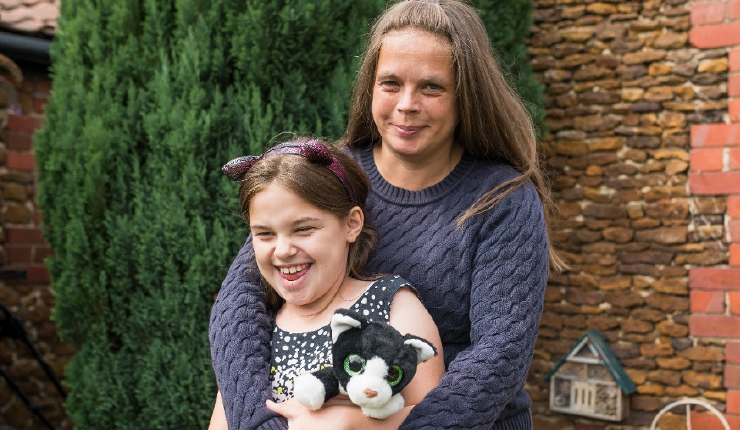Issue 7: Autumn/Winter 2019
Did you know? Scope of support

Lots of people know that we can fund an operation or provide grants to cover daily living expenses – but we can provide much more, and many people are unaware of the full range of support available from the MCF.
Here, we examine a couple of the lesser-known ways we are supporting people’s health and wellbeing.
Specialist Clinical Intervention
Each year, we help around 250 people through our counselling service, but for some people, counselling is not appropriate and cannot meet their needs.
Specialist Clinical Interventions (SCI) offer mental health support that is more in-depth than ordinary counselling and there are several types – the most common being Cognitive Behavioural Therapy (CBT).
How to access SCI
To receive SCI, you should first access our counselling service. A counsellor will establish if they can meet your needs and, if necessary, will carry out a full mental health assessment. This assessment is carried out over the telephone and will determine what type of treatment is best for you. Treatment can be provided over the phone or face-to face, whichever you prefer.
Unlike our standard counselling service, a full financial assessment is needed for the MCF to consider support for SCI. However, our grants team will always treat these applications as a priority, so the time from application to approval can be very quick.
Educational assessments
Autism, dyslexia and attention deficit hyperactivity disorder (ADHD) can all have a huge impact on a child’s education and wellbeing – especially if they are undiagnosed. Undergoing an assessment is the first step, but long waiting lists and the prohibitive costs of funding a private assessment mean that many children are not getting the support they need.
How to access an educational assessment
Anyone seeking an assessment for autism, dyslexia or ADHD needs to first be referred by their GP or school to local support. Once referred, if you’re facing a significant wait from the local authority, we can consider funding a private assessment for your child or grandchild. This will also require a full financial assessment, but once approved, our support can significantly decrease waiting times and alleviate costs associated with getting your child the support they need.
Grace and Rachel
When 9-year-old Grace began to struggle at school, single-mum Rachel wondered if an underlying spectrum disorder was having an impact on her wellbeing.
Grace was referred by her GP for an autism assessment, but faced a two-year wait to be seen.
Grace had always struggled a bit with school, but when she turned nine, everything seemed to escalate. She’d get really frustrated with herself over school tests and would come home crying. PE was also really hard – the noise and the smells would upset her. She’d bottle it all up and take it out on me, which was really stressful.
Unable to pay for a private assessment, Rachel worried that two years without appropriate support would significantly damage Grace’s emotional, educational and social development.
By mentioning this to her grants officer, we were able to support Rachel and Grace with an educational assessment. Grace has now been diagnosed as having high functioning autism, meaning that Rachel can work with the school to ensure that Grace has a suitable educational healthcare plan in place.
“To anyone else in a similar situation, I’d say that they should definitely ask for help! I had just assumed that I was on my own, but you really never know until you ask.”
Can we help you?
To access SCI or an educational assessment, or to explore other ways in which we can support you, get in touch:
0800 035 60 90
help@mcf.org.uk





